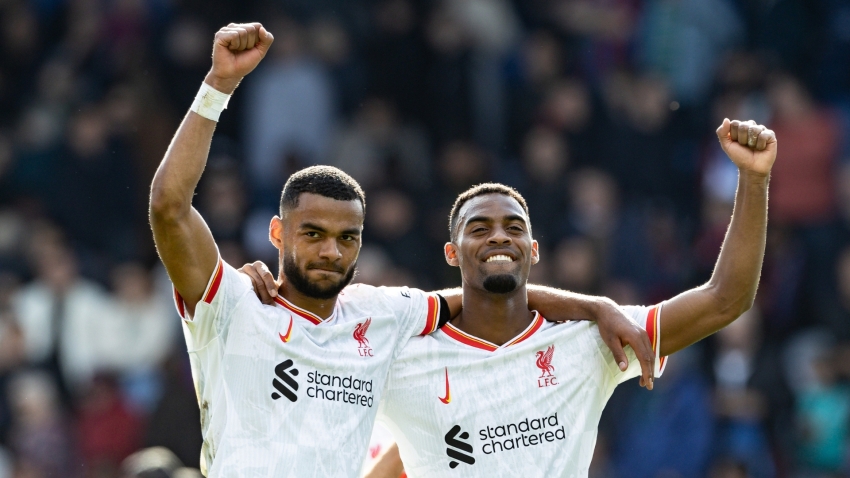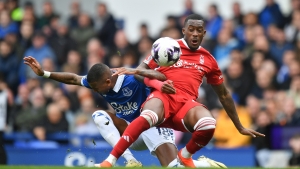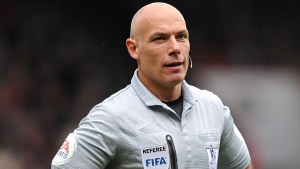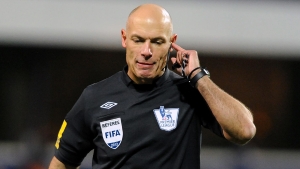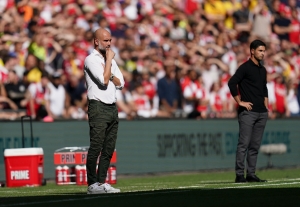Premier League referees’ chief Howard Webb says the change in approach on added time is here to stay, despite early criticism from top-flight players and managers.
Referees in competitions worldwide have been instructed by the game’s lawmakers to measure time lost to stoppages more accurately, an approach first adopted at the World Cup in Qatar last year where an additional 11 minutes and six seconds were played on average in the group stage.
Webb said the change was necessary as football gets to grips with the “dark arts” of time-wasting, with a a more robust approach set to be taken to dealing with players who delay restarts in play.
Sunday’s Community Shield lasted over 105 minutes, with Manchester City manager Pep Guardiola saying the International Football Association Board (IFAB), which sets the game’s laws, had not consulted with managers and players over the change in approach.
Manchester United defender Raphael Varane echoed those criticisms on Monday, saying the change, allied to a congested calendar, was “damaging” to the game.
Whereas ‘rule of thumb’ approaches had been used in the Premier League for certain stoppages last season – 30 seconds per goal celebration and substitution for example – referees and their wider team will now be asked to be more exact.
The Premier League anticipates the change in approach will increase the length of the average match in the coming season by three minutes and 23 seconds compared to last season – going up to 101 minutes and 49 seconds.
Webb, the chief refereeing officer at Professional Game Match Officials Limited (PGMOL), said: “As far as I’m aware and concerned (the change in approach on added time) is here to stay.
“I appreciate we’re hearing two sides of a coin here, but there was also a lot of noise around the need to do something around increasing effective playing time and getting more game for people who are paying good money to go and watch football.
“IFAB have acted undoubtedly with good intentions to try to deal with this. Last season a quarter of the games in the Premier League went above 100 minutes. I am expecting it to settle down.
“For sure there’s more dark arts in the game than previously. Everybody tells me that, and I see that myself as well. One of the things that will hurt us here is if we’re not consistent with this in the way that we play it. We have to be. It can’t be a flash in the pan. It can’t be a short-term campaign.”
In response to Guardiola’s assertion around a lack of consultation, Webb said: “Certain things change each year in terms of the laws of the game. IFAB is the organisation that ratifies changes.
“There is a consultation process that goes into that. There is a way people can feed into the process.
“Obviously, when something is ratified at (IFAB’s) AGM, it comes our way to deliver. By the end of this week I will have done at least 17 pre-season briefings, so people are aware what is coming. I am really keen to keep engaging, consulting and getting feedback and embracing the feedback and comparing it against other feedback we get.
“We have to find where the benefit is with any changes we want to apply. Is it frustrating? No. I know consultation does exist from our side, that is what we can control and we will keep engaging.”
The other major initiative from a refereeing perspective is a clampdown on poor behaviour from players and managers as part of a wider move to improve conduct, including among fans.
Webb said: “For too long our officials have not necessarily been able to make that differentiation (between passion and unacceptable behaviour) or have chosen for whatever reason to turn a blind eye or a deaf ear to certain things.
“But the power of example is so strong and we are seeing a lot of examples (of bad behaviour) and all the numbers are tracking in the wrong direction around what’s happening in the game in this area.
“We’re seeing grassroots officials have a bad experience too often and this has got to change in our sport and we’re determined collectively within the game to do this.”
Webb also confirmed audio from VAR decisions – including some clips where errors were made – would be aired on a monthly basis.
It follows on from Webb appearing on Monday Night Football towards the end of last season to talk through some incidents from earlier in the season in a bid to provide greater transparency around VAR.











